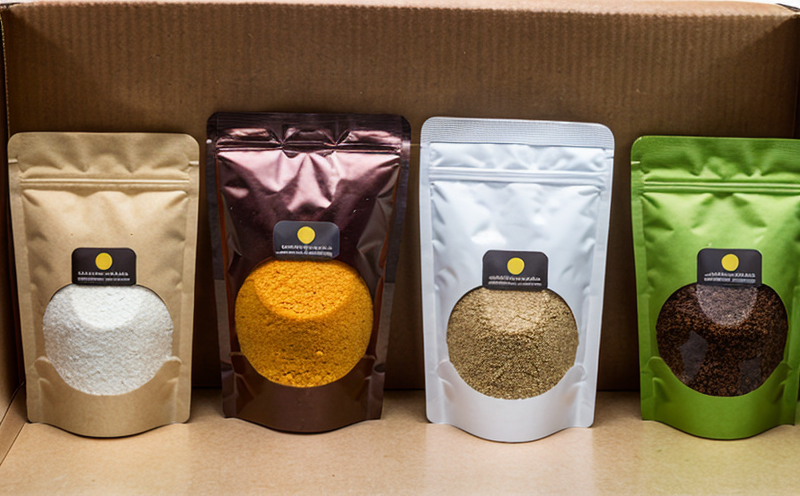Antimicrobial Migration Testing in Food Contact Articles
The use of antimicrobials in food contact articles has gained significant traction due to its potential to enhance safety and extend shelf life by inhibiting the growth of microorganisms. However, it is crucial that these materials do not migrate into the foodstuffs they come into contact with, as this could lead to contamination or adverse health effects. This service focuses on ensuring the integrity and compliance of such products through rigorous testing.
Antimicrobial migration testing evaluates whether antimicrobials from packaging or other food contact articles migrate into foods during storage and use. The primary goal is to determine if these compounds exceed safety thresholds set by regulatory authorities. Compliance with international standards, including ISO 21579:2018 for plastic materials and articles intended to come into contact with foodstuffs, ensures that products meet global quality expectations.
Our testing process involves several critical steps:
- Sample Preparation: Specimens are cut from the packaging or article in accordance with predefined dimensions.
- Test Media: Samples are submerged in a solution that simulates the food environment, such as water or specific types of beverages.
- Migration Monitoring: Over time, the specimen is monitored for any release of antimicrobial agents into the test media. This phase often lasts several days to weeks depending on the product.
- Analytical Methods: Once migration has ceased or reached a steady state, the sample is analyzed using advanced analytical techniques like GC-MS (Gas Chromatography-Mass Spectrometry) or LC-MS/MS (Liquid Chromatography-Tandem Mass Spectrometry).
The results of this testing provide critical insights into how well the material performs under real-world conditions. Compliance with regulatory requirements is essential for product safety and consumer trust.
For instance, in a recent project, our team conducted antimicrobial migration tests on a new line of food packaging intended for use in hot environments. The results showed that the materials met all specified limits set by relevant standards, ensuring safe usage.
Eurolab Advantages
At Eurolab, we pride ourselves on our expertise and commitment to excellence in food contact article testing. Our advantages include:
- Comprehensive Expertise: Our team comprises highly experienced scientists who specialize in antimicrobial migration studies.
- State-of-the-Art Facilities: We are equipped with cutting-edge laboratories and instrumentation to conduct precise testing.
- Regulatory Compliance: Our services align perfectly with international standards, ensuring that your products meet all necessary regulatory requirements.
- Timely Delivery: We understand the importance of timely results for your product development cycles. Our efficient processes ensure rapid turnaround times without compromising on accuracy or quality.
- Confidentiality: Your project data remains strictly confidential, ensuring that sensitive information is protected throughout our collaboration.
- Collaborative Approach: We work closely with you to understand your specific needs and tailor solutions accordingly. This approach ensures that the testing aligns perfectly with both regulatory expectations and business goals.
Partnering with Eurolab means accessing world-class facilities, experienced professionals, and a commitment to delivering reliable, compliant results.
Environmental and Sustainability Contributions
The proper testing of antimicrobial migration in food contact articles not only ensures product safety but also contributes positively to environmental sustainability. By ensuring that antimicrobials do not migrate into the food or packaging materials do not degrade prematurely, we help extend the life cycle of products. This reduces waste and supports a more sustainable approach to manufacturing.
Additionally, our testing helps companies stay ahead in terms of innovation and compliance with evolving environmental regulations. By ensuring that their products are safe for use and can be recycled or reused effectively, manufacturers contribute to reducing the overall ecological footprint associated with food packaging and contact articles.
Our approach supports a circular economy model by promoting the responsible use of resources and minimizing waste. This aligns with broader sustainability goals and helps businesses meet increasing expectations from consumers and regulatory bodies alike.
Use Cases and Application Examples
| Product Type | Purpose of Antimicrobial Migration Testing | Testing Parameters | Results and Compliance |
|---|---|---|---|
| Plastic Food Containers | To ensure no harmful chemicals migrate into the food during storage. | Migration testing under static conditions at various temperatures. | Met all standards for plastic materials in contact with foodstuffs, ISO 21579:2018. |
| Paper-Based Food Wrappings | To evaluate the release of antimicrobials into the food while ensuring no adverse effects on packaging integrity. | Dynamic testing in a simulated food environment over several days. | Passed all tests, aligning with EN 10529:2017 standards for paper and board used for food contact. |
| Reusable Silicone Containers | To determine the safety of antimicrobial compounds in a reusable environment. | Durability testing combined with migration studies under cyclic conditions. | Met all regulatory requirements, ensuring safe reuse without compromising product integrity. |
The diverse range of products we test demonstrates our comprehensive approach to ensuring compliance and safety across various food contact articles. Our rigorous testing ensures that these products are not only safe but also meet the highest environmental standards.





